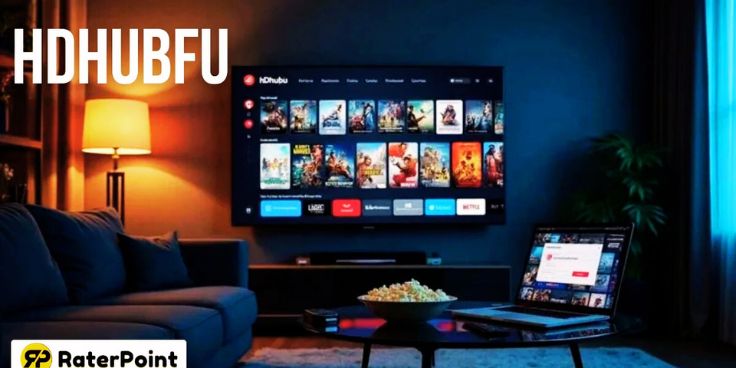In the virtual age, the internet has emerge as a powerful platform for sharing statistics—both good and awful. Among the controversial corners of the internet, fappeningblog has often drawn public attention because of its consciousness on leaked movie star content, specially explicit cloth. While it can generate curiosity and huge site visitors, it also increases questions about ethics, legality, and virtual privacy.
What is Fappeningblog?
Fappeningblog refers to a website that showcases leaked and regularly intimate pics or films of celebrities. The call is derived from “The Fappening,” a term coined during the 2014 mass leak of movie star nude pics from iCloud accounts. These leaks blanketed well-known figures like Jennifer Lawrence, Kate Upton, and Kirsten Dunst. The weblog evolved as an extension or continuation of those leaks, capitalizing on public interest in celeb scandals.
How It Works
The weblog commonly publishes images and quick video clips which can be both hacked, leaked, or determined through unethical approach. Often, users on underground forums or photo boards like Reddit or 4chan are the original supply. The blog republishes this content, including titles, tags, and classes to attract seek visitors. For instance, you would possibly locate categories like “celeb nudes,” “paparazzi upskirts,” or “leaked selfies.”
Example:
A submit is probably titled “[New] Margot Robbie Topless Paparazzi Set – July 2025”, observed through numerous unauthorized photographs.
Legal Issues and Privacy Concerns
One of the primary problems surrounding fappeningblog is the violation of privateness. Most content shared at the web site is posted with out the consent of the people involved. This opens up the blog to prison scrutiny and potential complaints. For instance, Jennifer Lawrence publicly condemned the unique Fappening leaks as a “intercourse crime” and pursued prison motion in opposition to the ones responsible.
Moreover, several nations have carried out strict facts protection legal guidelines, which include the General Data Protection Regulation (GDPR) within the EU and the Digital Millennium Copyright Act (DMCA) in the U.S. These laws make it unlawful to share intimate photographs without consent. As a result, many web hosting providers and engines like google may block or delist fappeningblog pages.
Ethical Dilemma
Even even though fappeningblog gets millions of site visitors every month, its popularity raises moral issues. It income from violating people’s privacy, feeding on public fascination with movie star lives. While a few argue that celebrities “give up their privateness” by way of being public figures, others strongly disagree.
Example:
A photograph taken of a superstar sunbathing on a personal seaside is not just a casual moment—it’s a violation if achieved with out consent. Publishing it crosses a ethical line, regardless of public interest.
The Rise of Celebrity Leaks
Fappeningblog isn’t always alone in its niche. Over the beyond decade, websites like Celeb Jihad, The Fappening Archive, and Leaked Models have received similar notoriety. This suggests a disturbing trend in how the internet is used to make the most people, especially ladies. Unfortunately, the demand for such content fuels more invasions of privateness.
Example:
When a famous actress gets her phone hacked and private photos are released, sites like fappeningblog become the go-to source for people looking to view or download them. This creates a dangerous cycle of exploitation.
Platform and Hosting Challenges
Due to its nature, fappeningblog frequently faces platform bans, DMCA takedowns, and domain suspensions. Hosting carriers sometimes dispose of the blog, forcing it to replace servers or domains. The weblog then uses replicate websites or backup domain names to live on-line.
Additionally, charge gateways like PayPal or Stripe regularly avoid associating with such structures, which limits monetization options. In reaction, the weblog may depend upon grownup advert networks or cryptocurrency donations.
Public Reaction and Media Criticism
Mainstream media and advocacy businesses have always criticized fappeningblog. Women’s rights corporations name it “revenge porn” in disguise. Even popular YouTube creators and tech newshounds have condemned the website online for cashing in on non-consensual content.
Example:
A BuzzFeed article titled “The Internet’s Dark Side: Inside the Fappeningblog Empire” criticized the blog for objectifying girls and ignoring the emotional damage completed to victims.
Why People Still Visit
Despite all of the controversy, fappeningblog keeps a big target market. The motives range—from curiosity and voyeurism to fan obsession and the taboo attraction of leaked content material. The web site’s search engine marketing strategies, together with celeb name tags and trending subjects, help it stay visible on engines like google.
Some customers even shield the blog, claiming it is “just leisure” or arguing that the content is “already at the internet,” displaying how normalized such invasions of privacy have emerge as in a few circles.
A Call for Responsibility
As customers of the internet, we must understand that traveling websites like fappeningblog contributes to a bigger hassle. It encourages hackers, endangers virtual privateness, and harms the intellectual nicely-being of the sufferers. Just because something is out there doesn’t imply it’s moral or legal to devour.
Conclusion
Fappeningblog is a effective example of the way digital interest can blur ethical boundaries. While it gives content that many find enjoyable or tempting, the cost comes at someone else’s privacy, dignity, and safety. With stronger prison measures and extra focus, we will move closer to a greater respectful online subculture. It’s not pretty much the weblog—it’s about what we choose to support.












Leave a Reply